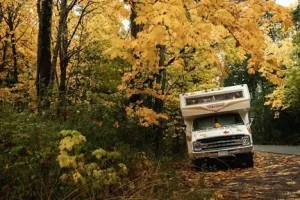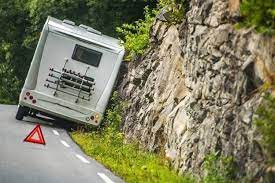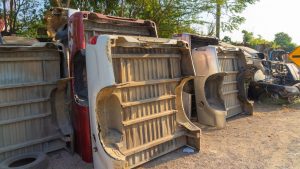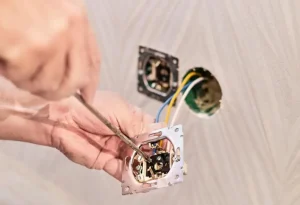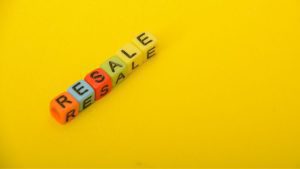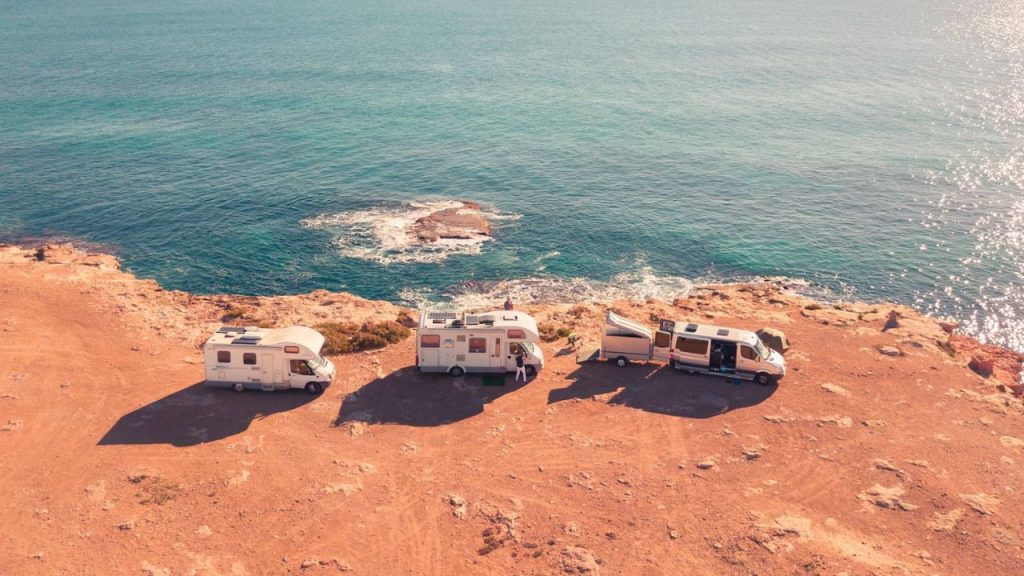
Miami’s vibrant coastal lifestyle attracts RV enthusiasts seeking year-round sunshine. But that same ocean air laden with salt can stealthily corrode metal, degrade components, and leave your motorhome needing serious repair or replacement.
If you’ve noticed rust spots, electrical gremlins, or stubborn odors in your RV after a Miami season, it may be time to consider parting ways. In this article, we’ll unpack how salt-air corrosion forms, examine the damage it causes, and how that deterioration erodes your RV’s market value. You’ll also learn why private sales, dealer trade-ins, and scrapyards often fall short, and discover how HeyRV is the smartest way to get cash for junk RVs in Miami, Florida.
What Is Salt Air Corrosion?
Salt air corrosion—sometimes called “marine corrosion”—happens when humid, salty breezes eat away at exposed metal surfaces. In Miami’s coastal climate, sea spray and moisture accelerate rusting, often creating deep pits and rough spots around seams, joints, and where dissimilar metals meet (like aluminum siding against steel framing).
Parked near the ocean, your RV’s protective coatings and sealants can fail in just a few months, leaving bare metal vulnerable. When corrosion spreads beyond easy repair, many owners decide it’s time to sell their junk motorhome in Miami rather than pour money into a rusted-out rig.
How Salt Air Can Damage an RV in Miami, FL
Salt air’s corrosive power spares few parts of an RV. Below, we explore how various systems and components succumb to salt-induced deterioration:
Structural Components: Steel frames develop pits and weakened welds, while aluminum or steel sidewalls and slide-out tracks corrode from the inside out, often jamming or misaligning panels and requiring costly replacements.
Electrical & Electronics: Salt infiltrates wiring harnesses and corrodes terminals, causing shorts and power loss, and oxidizes exposed contacts on circuit boards in appliances and HVAC controls, leading to erratic behavior or complete failure.
Plumbing & Water Systems: Brass and copper fittings pit and leak, contaminating freshwater lines with rust, and tank walls and rubber seals degrade until valves fail—triggering foul odors and expensive cleanups.
Interior Finishes & Comfort Features: Hinges, handles, and drawer slides seize as plated metals rust, appliances with metal actuators lock up, and salt residue crystallizes on fabrics, accelerating wear and promoting mildew growth.
Mechanical & Safety Systems: Brake components, wheel bearings, suspension bushings, and propane fittings corrode, undermining stopping power and risking gas leaks, while salt crystals eat away at roof seals and awnings until tears and leaks appear.
Collectively, these issues not only undermine performance and comfort but also drive repair costs into the tens of thousands of dollars. In many cases, insurers deem the RV a total loss once corrosion penetrates structural members or electrical systems.
How RV Resale Value Is Affected by Salt Air Damage
RV buyers—both private individuals and dealerships—are keenly attuned to corrosion issues. Even if an RV appears functional after superficial repairs, the specter of ongoing salt air damage casts a long shadow over resale value.
- Title Branding & Disclosure
While Florida does not formally “brand” salt-damaged RVs like flood-branded vehicles, any documented history of corrosion or electrical faults must be disclosed. Failure to do so opens sellers to legal liability. - Buyer Confidence
Prospective buyers know that salt air damage is progressive. Visible rust pits on the frame or corroded wiring connectors raise red flags, leading to deep discount offers or outright walk-aways. - Market Penalties
RVs with documented salt corrosion often sell for 30–60% below comparable models in dry-climate markets. Even extensive cleaning and spot repairs seldom restore full value, as latent corrosion may lurk beneath the surface. - Insurance & Financing Hurdles
Lenders and underwriters may refuse coverage on older coach models with advanced salt-air wear, forcing buyers into all-cash transactions. This shrinks the buyer pool and drives down prices further.
Simply put, salt air damage chips away at your RV’s equity more mercilessly than ordinary wear and tear. The longer corrosion is allowed to progress, the steeper the markdown—and the harder it becomes to recoup repair costs.
Your Options For Selling a Corroded RV in Miami
When corrosion renders an RV too costly to refurbish, selling becomes the likeliest recourse. But traditional channels in Miami come with significant drawbacks:
Private Sales
Selling a corroded RV privately requires weeks or months of effort—crafting detailed listings, fielding inquiries, and scheduling showings. Buyers will factor in potential future corrosion when making offers, leading to lowball bids well below market value. Additionally, any failure to fully disclose known salt-air issues can result in legal disputes or liability claims down the road.
Dealership Trade-Ins
Most Miami RV dealerships are reluctant to accept corroded units. Those that do will impose steep trade-in discounts to offset their anticipated repair costs, and may tack on environmental remediation fees. Your final credit toward a replacement vehicle often feels like a token gesture rather than a fair transaction.
Scrapyards & Salvage Yards
Scrap dealers pay strictly by weight and salvageable metal content, typically offering meager per-pound rates. On top of that, unless they provide free towing, you’ll incur removal fees that erase much of the payout. Ultimately, the most valuable parts of your RV—frame sections, aluminum panels, copper wiring—end up commingled in a melt down, offering little consolation for days spent seeking better offers.
Faced with these limited options, many Miami RV owners find themselves stuck between poor offers and endless hassle. Fortunately, there’s a better way to sell your damaged RV for cash.
Sell Your Salt-Air Damaged RV to HeyRV in Miami
If you’re ready to bypass the hassles of private listings, dealership down-prices, and scrapyard disappointments, HeyRV provides a superior solution to get cash for junk RVs in Florida. Here’s why:
Free RV Removal Anywhere in Miami
Whether your coach is parked near South Beach, tucked away in Kendall, or stranded at an RV park on the outskirts of Homestead, HeyRV will remove your junk RV for free. No towing bills, no scheduling headaches.
Zero Paperwork Hassles
HeyRV’s legal experts manage title transfer, bill of sale, and any required salvage disclosures. You won’t need to wrestle with DMV forms or pay extra notary or administrative fees.
We Buy All Types of Damaged RVs
Beyond salt-air corrosion, HeyRV purchases RVs with hail damage, water (flood) damage, mechanical failures, fire or smoke damage, and end-of-life junk RVs. Whatever the condition, we’ll turn your compromised coach into cash.
Nationwide Service, Local Expertise
While HeyRV’s reach spans all 50 states, our Miami team understands the specific challenges of coastal corrosion, local regulations, and salvage markets. We apply that expertise to ensure every Miami seller gets the most competitive offer possible.
In sum, HeyRV offers you a frictionless path to sell your salt-air damaged RV in Miami—no lowballers, no hidden fees, and no headaches. If you’re ready to see how much cash we can pay for your damaged RV, request a quote today!
Get Cash for Your Damaged RV in Miami Today
For RV owners seeking cash for motorhomes in Miami, HeyRV stands out as the premier junk RV buyer in Miami. With free removal, immediate payment, no paperwork burden, and market-leading offers, HeyRV transforms your corroded coach into instant cash. Contact HeyRV today and experience the easiest way to sell your salt-air damaged RV in Miami, Florida!
Frequently Asked Questions
Below are answers to additional questions Miami RV owners often ask when facing salt-air corrosion issues and considering a sale:
How can I tell if my RV is corroded beyond repair?
Visible pitting on the frame, stuck slide-outs, leaking fittings, and persistent electrical faults are red flags. A professional inspection—either by a certified RV technician or your HeyRV representative—can evaluate structural integrity and repair feasibility.
What maintenance can slow salt air damage if I choose to keep my RV?
Rinse your RV with fresh water weekly, apply marine-grade protective wax or sealant every three months, lubricate slide-out tracks, and inspect seals for integrity. Regular undercarriage washes and anti-corrosion sprays also help.
Does HeyRV handle partial‐damage buyouts, or must the entire RV be sold?
HeyRV specializes in whole-vehicle acquisitions. If parts of your RV are salvageable, we factor that into our offer; otherwise, you may sell usable components separately before our removal.
Are there any hidden costs or fees when selling to HeyRV?
Absolutely none. HeyRV’s quotes are all-inclusive: free pickup, no administrative or notary fees, and no deductions at the time of sale.
What documentation do I need to sell my RV in Miami?
Bring a valid title (or lien-holder info if financed), a government-issued ID, and any maintenance records you have. HeyRV provides all sale and DMV paperwork at pickup.
Can HeyRV buy RVs in other Florida cities beyond Miami?Yes—HeyRV serves all of Florida, including Fort Lauderdale, Tampa, Orlando, and Jacksonville. Wherever salt air or storm damage has taken its toll, we’ll come to you!

